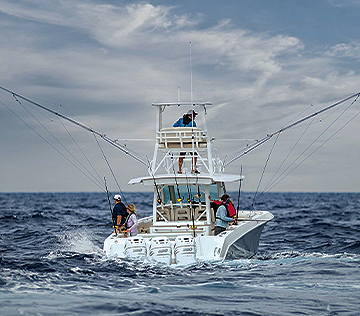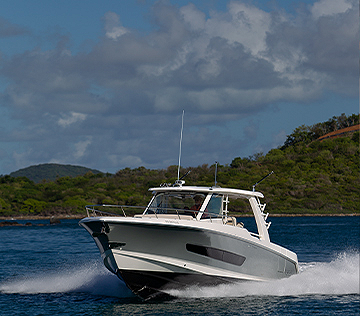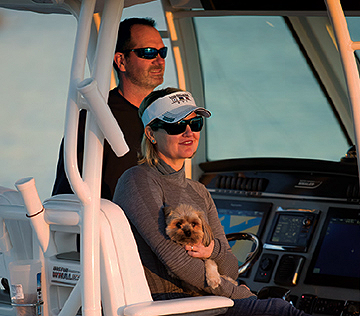
10 Common Boating Mistakes You Don’t Want to Miss
We all make mistakes. And with the constant distractions on the water, it can be too easy to make them while boating. It takes a great deal of knowledge, confidence and experience to make a day on the water nothing but smooth sailing. Even the most seasoned boaters make mistakes, so it’s important to learn from common missteps, eliminate error and prevent accidents.
1. Always check the weather!
The first boating mistake often made happens even before you reach the water, so always check the forecast and assess conditions. There are great marine weather resources out there. With apps like NOAA Marine Weather Forecast, Buoyweather, and Predictwind, boaters can proactively check conditions before setting sail and stay updated on the go.
2. Failing to perform regular maintenance and check vessel safety.
Another grave boating mistake that can be prevented before you step aboard: check your vessel. Always make sure your boat is functioning safely and properly to avoid malfunctions later on. Visit https://wow.uscgaux.info/i_want_a_vsc/index.php to have your boat assessed for safety by the U.S Coast Guard.
3. Don’t mess around with Running Aground.
Running aground can cause problems for any boater, regardless of experience. Tide conditions and underwater hazards can change unexpectedly, sometimes resulting in quite a rocky situation –literally! The U.S Coast Guard recommends always remaining aware of your locale, the underwater hazards, and tide conditions.
4. Fill up the tank.
Running out of gas out on the water can happen just as easily as it does on land. To make matters worse, fuel gauge readings on boats can be less reliable than the ones in our cars. You can’t walk to the nearest gas dock or call an Uber, either. It’s crucial to always be prepared and leave the harbor with a full tank.
5. Speaking of fuel – watch where you pour.
The fuel nozzle and water fill are not friends. Let’s keep it that way. As obvious as it may sound, it happens…a lot. Always pay attention to where you put the fuel nozzle to avoid a mess both onboard and in your wallet.
6. Watch out for the dock.
The best ways to avoid dock collisions are to slow down and demonstrate proper docking skills. The U.S Coast Guard recommends these 10 steps to safe docking: https://www.boatingsafetymag.com/boatingsafety/ten-tips-make-docking-easy-and-safe
7. Keep things light.
Overloading the boat can be dangerous. Always be mindful of who and what you’re bringing on board to stay safely below the maximum weight capacity. The U.S Coast Guard recommends checking state regulations for weight capacity, rules and restrictions.
8. The drain plug—it’s small but mighty!
Never forget to put in the drain plug. Missing this small step can have catastrophic consequences, so don’t overlook this little guy. Stay plugged in to stay afloat.
9. Don’t run the engine dry.
This one not only hurts your engine but your wallet, too. When the engine runs without water, whether from a clogged intake or running it out of the water, it can overheat and cause major damage. Keep your engine in the water, lubricated, and happy.
10. Are we there yet?
With phones and GPS systems everywhere, this one may seem a given. But getting lost at sea is no joke. Cell service can be spotty out there, and your GPS system invincible, so always know where you’re headed. And let someone else know by sharing your float plan: where you’re going and when you expect to be back.
--
This is for general information purposes only. Your use or reliance on any of the information in this Blog is solely at your own risk. Under no circumstance will we have any liability for any loss or damage of any kind incurred as a result of the use of any of the information provided.
Options and features mentioned subject to change. Please confirm availability of all accessories and equipment with an authorized Boston Whaler Dealer.



